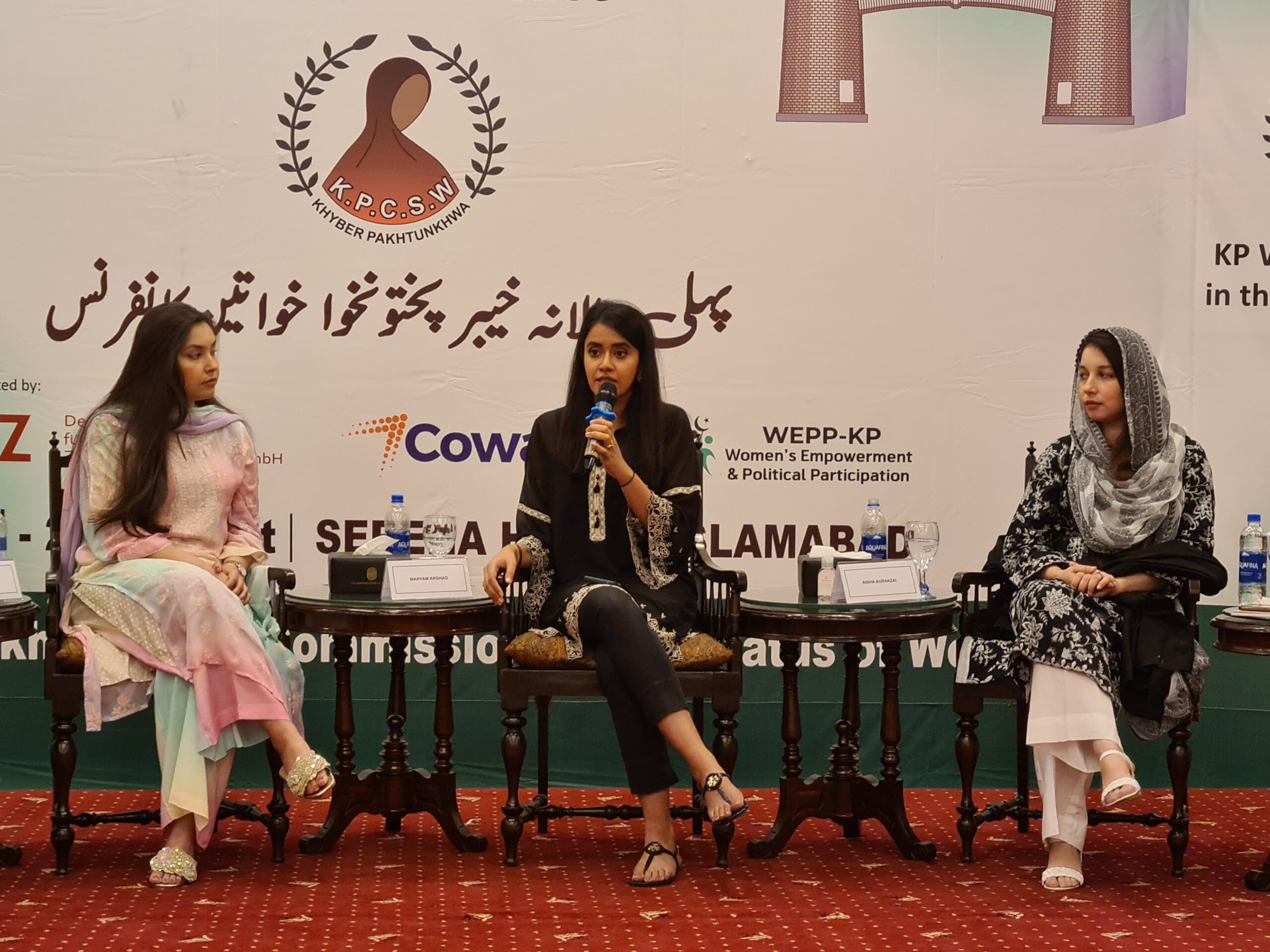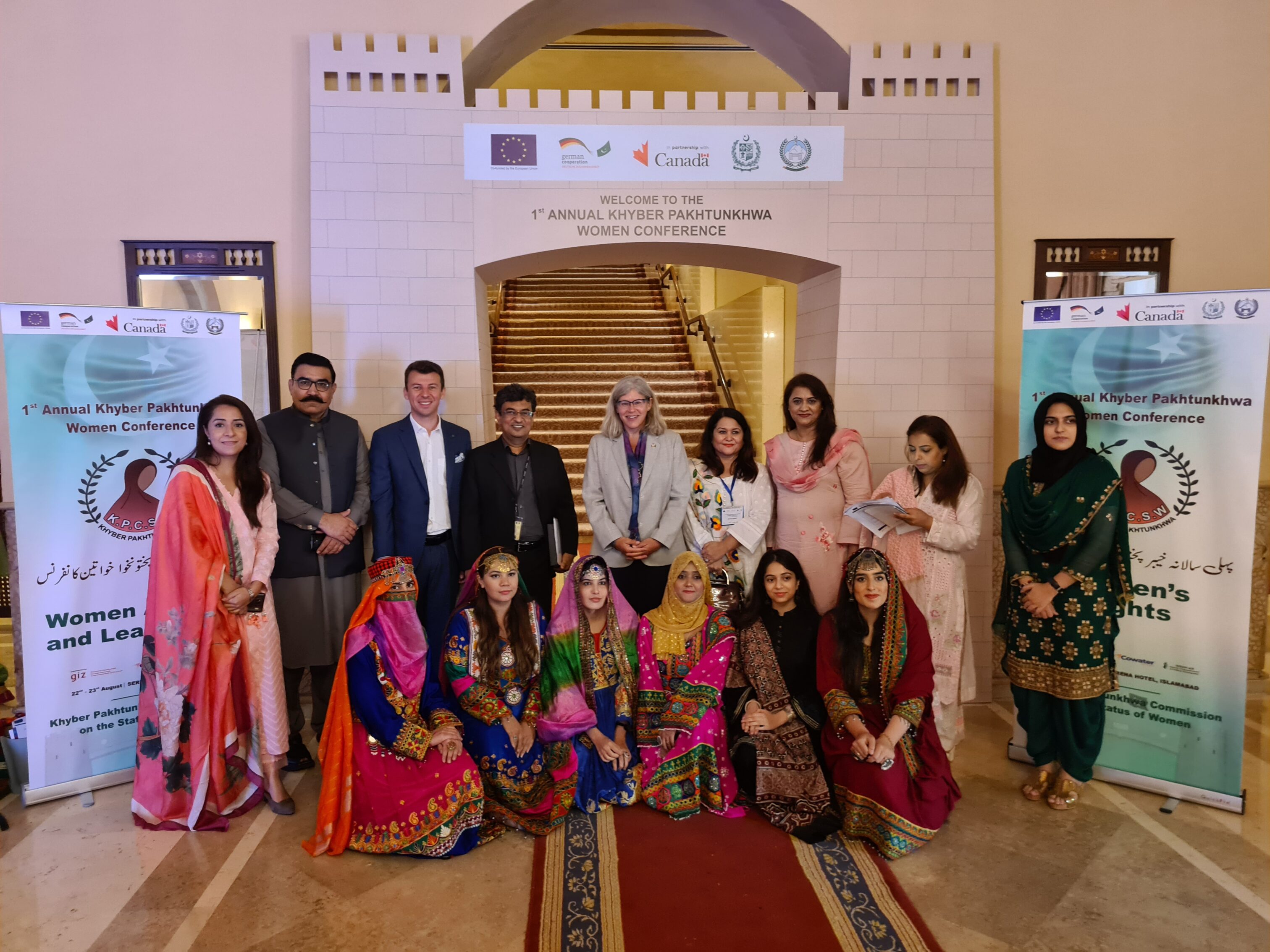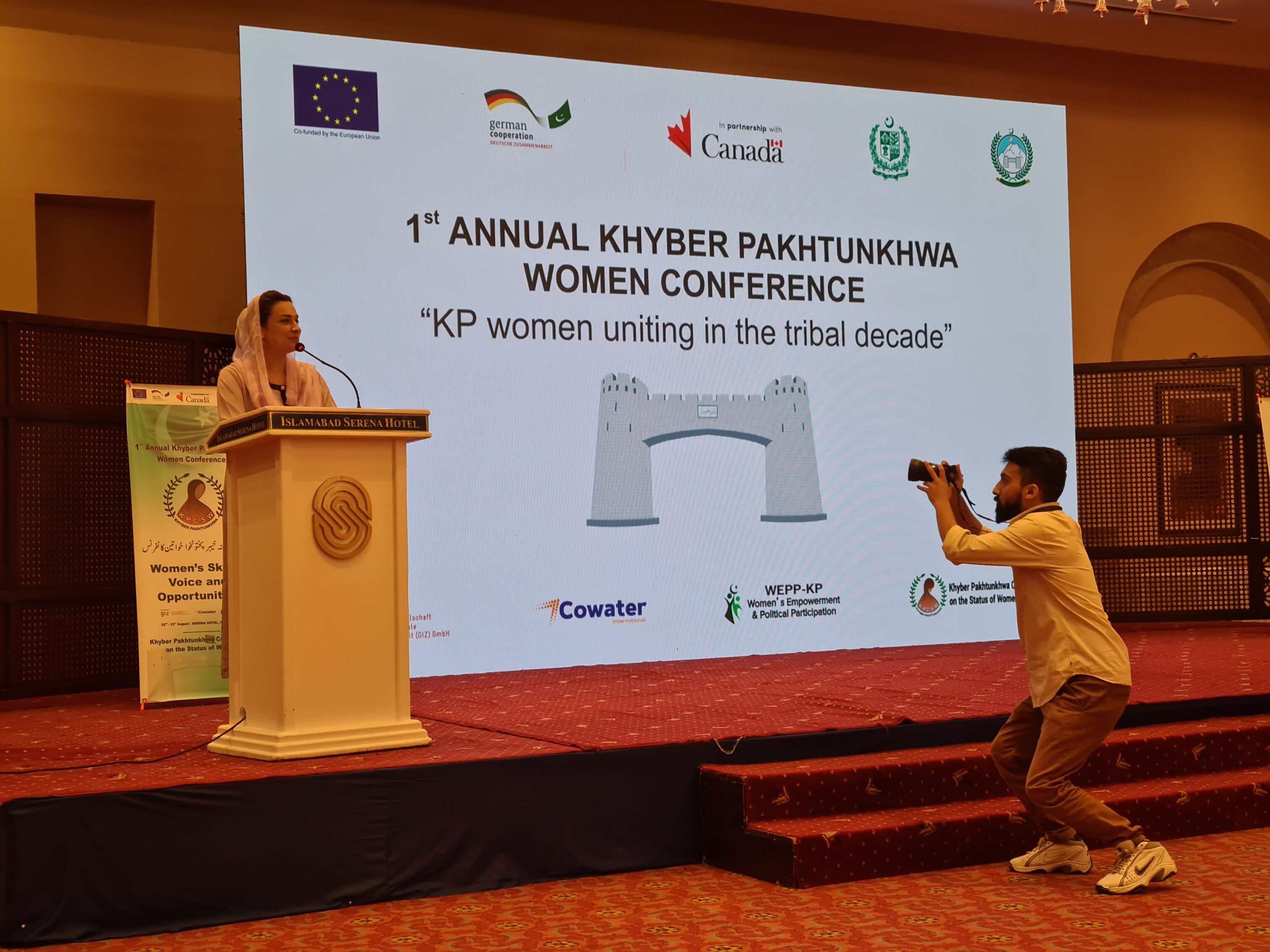
Empower women to achieve greater prosperity for all Pakistanis
Pakistan is a vibrant, diverse and politically engaged country of approximately 225 million people, 48.5 percent of whom are women and girls. Pakistan supplies the world with beautiful textiles, quality leather goods and has outstanding human capital in many sectors of engineering, science and technology. Bordering Iran, Afghanistan, China and India, with a coastline along the Arabian Sea, Pakistan has great potential as an economic leader both in the region and globally. Women’s participation and contribution to Pakistan’s growth and development is critical, yet the country ranks second to last, ahead only of Afghanistan, in the Global Gender Gap Index. Much more can be done to empower women to fully and equally participate in Pakistani society.
Cowater International, with funding from the Government of Canada, is advancing women’s voice and rights in the Khyber Pakhtunkhwa (KP) province of Pakistan through the Women’s Empowerment and Political Participation in KP project (WEPP-KP). In partnership with GIZ and our provincial government counterpart – the Khyber Pakhtunkhwa Commission on the Status of Women (KPCSW) – WEPP-KP co-hosted the First Annual Khyber Pakhtunkhwa Women’s Conference in Islamabad, on August 22-23. The event brought together women leaders and champions to celebrate and advance the role of women in politics, media, sports, entrepreneurship and highlight the unique challenges facing women in addressing climate change, accessing the labour market, practicing sports or staying ahead of the curve in digital transformation. The conference was an opportunity to share experiences of women-centred policies and practices across Pakistan’s provinces, but also engage leaders and decision-makers to identify key needs and policy improvements that can facilitate a roadmap to gender equality, and a more inclusive and prosperous society.

Access to education, skills development and employment were highlighted as critical elements of empowering women to fully contribute to society. When women have decent work, whole economies grow by boosting productivity, increasing economic diversification and improving income equality. It is estimated that gender gaps in employment cost the economy on average 15 percent of GDP. Research also suggests that when women have sustainable incomes, their families enjoy better health and education outcomes increasing family nutrition by 4-7 times more than the income of fathers. Moreover, UN Women studies highlight that when women are engaged politically and freely exercise their political and social rights, communities are more stable, and peace is more sustainable.
Moreover, Pakistani women should enjoy equal rights and opportunities to participate in political, social and economic life. Sustainable development cannot be achieved without the full participation of women and girls in arts, culture, the digital economy, political life and business. The Sustainable Development Goals, and specifically Goal 5, recognize the vital role of achieving gender equality to promote inclusive development and create opportunities for the most vulnerable and marginalized women and girls. The Government of Canada is fully committed to achieving gender equality globally, allocating approximately 90 percent of its bilateral aid budget to improving the lives of and empowering women and girls around the world. In Pakistan, Cowater International, with funding from Global Affairs Canada, specifically focuses on improving women’s political participation as voters, community leaders and candidates for elected positions.

A shining example of the progress that has been made in recent years towards gender equality is exemplified by the Khyber Pakhtunkhwa Commission on the Status of Women (KPCSW). Established by the KPCSW Act 2016, the Commission has a mandate to review all provincial laws, rules and regulations affecting the status and rights of women and recommend repeals, amendments or new legislation essential to eliminating discrimination, safeguarding and promoting the interests of women and achieving gender equality in accordance with the Constitution of the Islamic Republic of Pakistan. KPCSW’s role is to hold the provincial government accountable to its commitment to achieve gender equality within its institutions and among its constituents. Canadian support to KPCSW, delivered through the WEPP-KP project, managed by Cowater International, has enabled the statutory body to establish itself as a respected and vocal institution of the Khyber Pakhtunkhwa Government. KPCSW is now regularly called on by other public departments to improve the gender-responsiveness and inclusivity of various government functions and services.
Today, Pakistan stands at a critical juncture economically and politically. Its future growth and development are highly dependent on its ability to bring women’s voices and talents into action. When women are included, participate fully and benefit equally, the whole country wins. That is why every girl and every woman in Pakistan should have the opportunity to be educated, have a meaningful job and sustainable income, and control and autonomy over all decisions for her future.




